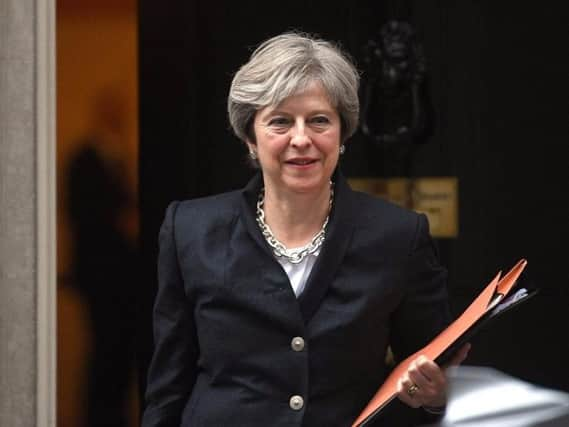'May is adding to the mental health crisis, not fixing it'


Though her speech was supposed to set the tone for her premiership, and reach out to the “just about managing” and marginalised, the Prime Minister has failed in practice to embrace the scale of state assistance required to tackle this crisis.
Mental illness has had a fraught relationship with the state since it was first written about in the medieval period. Influenced by Greek and Arabic physicians, it was the opinion of medieval British doctors that the condition was a product of God’s will.
Advertisement
Hide AdAdvertisement
Hide AdPublic discourse has, thankfully, progressed considerably since then and May should receive praise for her sincere efforts to end stigma. But state assistance remains inadequate. Very inadequate. If firemen tackled each blaze the way May fights “burning injustices,” they’d all be equipped with watering cans.
In July, her government said 21,000 extra NHS staff would join the mental health workforce. This might sound promising, but when spread across the UK the impact will be marginal. Furthermore this headline number does not offset the estimated 30,000 nurses who have left this sphere of healthcare in recent times.
Theresa May has said herself that there will be no new funding for the scheme. Instead, resources will be carved out of the £1bn set aside by the Cameron government.
But this budget is itself in dispute. In 2015, David Laws, once a minister in Cameron’s government, said in his memoirs that Downing Street had pressured NHS chief executive Simon Stevens over his demands.
Advertisement
Hide AdAdvertisement
Hide AdRather than £16bn, the NHS received £8bn. Instead of £2bn, mental health received £1bn. It remains to be seen how May will “raise standards of care” and “roll out support to every school in the country” in this context.
For all the discursive progress that has been made, the Conservatives’ record is more closely aligned with that of medieval physicians than the speeches given outside No 10. Much like past physicians relied on the invisible hand of God, today’s Government relies too heavily on the invisible hand of the market.
Between 2011 and 2014, the number of children admitted to A&E with a psychiatric condition doubled, and teenagers admitted to hospital for self-harm increased by 68 per cent.
However, if the Prime Minister was more progressive, she could not only provide the necessary support for these sufferers and reduce pressure on hospitals, but construct a legacy that passes the test of time. Tackling mental illness represents an effective political strategy. It is an issue that cuts across class, age and party. Done the right way, May has the opportunity to become the Nye Bevan of mental health.
Advertisement
Hide AdAdvertisement
Hide AdIn doing so, she would receive a better reception from those sections of society who did not support the Tories on June 8. One might be the student population. An NUS survey found that 78 per cent of students had experienced a mental health problem in the last year. Unsurprisingly, it takes more than grandiose statements and awkward media campaigns to win them over.
The Prime Minister needs to recognise that the Conservative government is contributing to the crisis more than it is fixing it. To pursue cuts, to remove economic safety nets and to roll back state assistance generally whilst attempting to “take on mental illness” is bafflingly blinkered. It’s like trying to tidy the garden with a rake made entirely of dried leaves. In an age of austerity, it takes an act of cognitive dissonance to be a Conservative mental health advocate.
The Government should be investing much more in 24/7 crisis response, residential rehabilitation and supported housing, access to care for children and young people and support for the 29,000 people each year who need psychological therapies to find or stay in work.
Given that mental illness costs England around £105bn per year, the equivalent of the entire budget of the NHS, this would seem like a reasonable investment.
Advertisement
Hide AdAdvertisement
Hide AdOn top of this, Jeremy Hunt remains in the Cabinet. A man with little or no expertise in health when first appointed by David Cameron in 2012, it’s questionable whether the Health Secretary has the authority to undertake the changes required; whether it be standing up to the Treasury or instructing the vast NHS bureaucracy to respond more effectively to the mentally ill so they don’t have to travel hundreds of miles for a hospital bed.
Despite her good intentions, Theresa May finds herself at risk of becoming as inactive on issues of mental illness as the doctors of old. It is ironic then that I draw upon an Ancient Greek physician to propose what action might be taken from here. As Hippocrates states “whenever a doctor cannot do good, he must be kept from doing harm”. The same goes for Prime Ministers.
Bradley Young is a politics student at the University of Leeds.